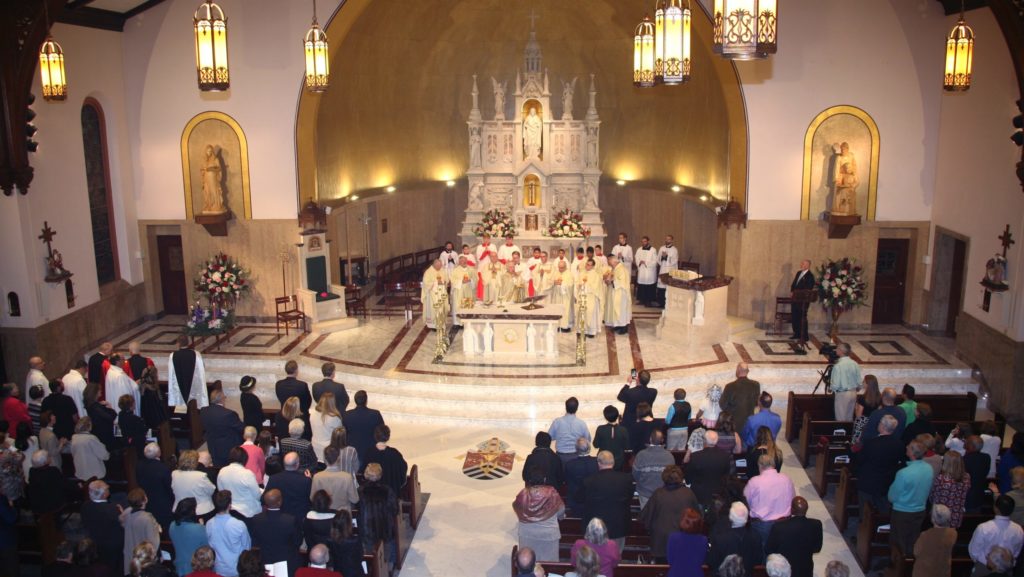My wife and I love to travel, and we are in the midst of a two-week trek through the South. We went to see our two sons, who live in Nashville, and continued to Georgia and the Carolinas, sightseeing and visiting friends and family who had left California for a different kind of life.
It hasn’t felt like we qualify for refugee status — yet — but we certainly felt what people feel who stand on unfamiliar ground. The big cities, Nashville and Atlanta, were like every big city I have ever visited in the United States. Large, skyscraper-laden civic centers and choking traffic.
In one not-quite-so-large city, Chattanooga, there was even a drive-by shooting that shut down the freeway we were traveling on. I doubt they provided this diversion to make my wife and me feel more at home, but it was an indicator of the truthfulness of the axiom: “The grass is not always greener on the other side of the Mason-Dixon line.”
The cliche of how people in the South are friendlier proved mostly true, but when we told people we were from Los Angeles, I felt compelled to qualify it almost immediately: “But we aren’t staying.” That rejoinder usually elicited a look of relief to the friendly faces we encountered.
It has been almost a year since our two sons moved to Tennessee. Like many native-born Californians, they have reversed the direction of resettling that all four of their grandparents chose almost 100 years ago.
You learn a lot by traveling. My wife and I learned that different states have different cultures within cultures, and to think of “the South” as a monolithic block of identity is like thinking the same thing about Central America. There were certainly cultural linkages that overcome race, language, and political influence — like cornbread.
Regardless of where you travel throughout the South, you are going to get cornbread. And I must confess it seemed to speak to my own Southern DNA, as it reminded me of the plate of freshly baked cornbread that was always on my Arkansas grandma’s kitchen table. And the memory of my wonderful grandma is safe — the cornbread I consumed in Tennessee, Georgia, South Carolina, North Carolina, and back again in Tennessee was good, but not as good as hers.
There was another connective tissue we discovered on our travels, one that spoke to another elemental component to my internal hard wiring. It mattered not whether we traveled in the sophisticated metropolis of Charleston, South Carolina, or through the backroads of Georgia. Thanks to our Waves app appearing to have some kind of nervous breakdown, we saw churches — lots of them. My wife and I started calling them out as we drove, like the license plate game we used to play on road trips with our kids.
We did not see as many Catholic churches as we hoped, but the number of so many denominations, some of them occupying all four corners of intersections, in big and small towns alike, made it clear we were not back in Los Angeles. And on the two Sundays we spent on the road in the South, those church parking lots were filled with cars.
We had to Google it, but we did find Mass for our Sundays in the South, and that was a revelation as well. We found beautiful old buildings that had survived hurricanes and the Civil War, where the Mass has been said uninterrupted. Mass in Charleston, which probably has more ornate churches per square inch than any other city on the planet, was inside a gothic structure replete with gargoyles and inside, the Mass, which was said in English, was said in the ad orientem (“to the east”) form.
I do not know if it was because we were so far away from home, or the spiritual geography of this particular Mass, but both my wife and I received it as a spiritual steroid.
Soon enough we will be back home in Los Angeles and back into our regular routine. There will not be a need to Google “Catholic church near me” on my phone, and it will be a lot easier to find a parking space, but we will be back at our home parish. And it will be the same Mass that we experienced on the other side of the country.
We will find the word, and we will find the word becoming flesh, no matter what language, what accent, or what direction the priest is facing. And we will be home in Los Angeles just as we were home in those churches in Nashville and Charleston.

